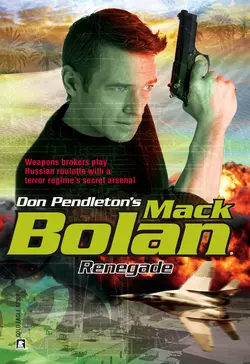Renegade

Don Pendleton
Тип: электронная книга
Жанр: Книги о приключениях
Язык: на английском языке
Стоимость: 150.68 ₽
Статус: В продаже
Издательство: HarperCollins
Дата публикации: 16.04.2024
Отзывы: Пока нет Добавить отзыв
О книге: State of TerrorMack Bolan hits the streets of Tehran, looking for a renegade former Soviet weapons expert who sold out to the terror business –a man who knows the hiding places of the toppled Iraqi dictator′s arsenal of biological and chemical agents. But the stakes get higher when Bolan makes the grim connection between the deadly weapons and individuals double-dealing in death. Those paid to hide the cache are now reselling everything, from bubonic plague to sarin gas, to any terrorists with enough cash. In a world held hostage by the madness of a few, Bolan stands determined to fi ght as long as he′s alive to keep the balance of power in the hands of the good… and hope it′s enough to make a difference.